<p><span style=”font-weight: 400;”>In 1971, a terrible event showcased both the strength and cruelty of humans. On March 25, the Pakistan Army started Operation Searchlight, attacking the unarmed people of East Pakistan (now Bangladesh). This wasn’t just an attempt to control them — it was a massacre, almost a genocide. Innocent people were killed, dreams destroyed, and the rivers turned red with blood. The ground shook from the violence, and the air was filled with the smell of death, fear, and betrayal.</span></p>
<p><a href=”https://news.abplive.com/blog/opinion-case-for-pojk-s-integration-with-india-the-time-is-right-1757341″><strong>ALSO READ | A Case For POJK’s Integration With India — The Time Is Right</strong></a></p>
<h3><strong>A Night Of Terror</strong></h3>
<p><span style=”font-weight: 400;”>On March 25, 1971, Dhaka became a theatre for unimaginable atrocities. The night provided cover as the guardians of the state launched attacks on their own citizens — men, women, and children, whose only fault was desiring dignity and liberty.</span></p>
<p><span style=”font-weight: 400;”>The Pakistan Army’s elite troops attacked Dhaka University with viciousness, firing bullets into dormitories where students were sleeping. Professors were dragged out of their homes and shot in summary executions, their blood marking the walls of learning.</span></p>
<p><span style=”font-weight: 400;”>In Shankhari Bazaar, Hindu homes were reduced to blazing coffins as entire families were burnt alive. The screams of infants ripped from their mothers’ arms and thrown into fire still haunt the pages of history. Hospitals, sanctuaries of healing as they are, were raided, and physicians shot while still tending to their patients. </span></p>
<h3><strong>Organised Massacre</strong></h3>
<p><span style=”font-weight: 400;”>This wasn’t a random act of cruelty. Operation Searchlight was carefully planned for months. The Pakistan Army, following orders from General Yahya Khan and his brutal enforcer, General Tikka Khan, the ‘Butcher of Bengal’, set out to destroy the very essence of Bengali identity.</span></p>
<p><span style=”font-weight: 400;”>Entire villages were obliterated in the intense barrage of Pakistani mortars and machine guns. Fathers were executed in front of their sons, their bodies left to decompose as a warning to others. Mothers were subjected to mass rape, their cries echoing through the heavens. Women, young and old, became the primary victims of sexual violence. An estimated 2,00,000 to 4,00,000 women were raped, many of them mutilated beyond recognition, some driven to madness, others coerced into Pakistani military brothels, their bodies exploited as instruments of war.</span></p>
<p><span style=”font-weight: 400;”>Mass graves quietly took in the dead, their stories hidden by the state’s denial. Bloated bodies floated in rivers and lakes, grim reminders of the genocide. Villages were burned down, leaving only smouldering remains. </span></p>
<h3><strong>Exodus Of Despair</strong></h3>
<p><span style=”font-weight: 400;”>As East Pakistan was engulfed in flames, its people fled en masse, their shattered spirits trailing them like shadows. Nearly 10 million Bengalis fled to India to escape the relentless attacks by the Pakistan Army. This mass movement was filled with immense suffering — mothers carried their lifeless babies, fathers were forced to beg, and families were torn apart. The refugee camps became places of death and disease, where the weak perished and the strong were left with deep scars from the horrors they had endured. The world powers watched in horror. They were aware, yet no one took any action.</span></p>
<p><span style=”font-weight: 400;”>The silence of global powers showed the corruption in diplomacy. The United States, caught up in Cold War politics, chose to support Pakistan. President Nixon and Henry Kissinger ignored the genocide, valuing alliances over human lives. Meanwhile, journalists like Anthony Mascarenhas risked their lives to reveal the truth, showing the world the planned massacre. Despite this, the international response was weak due to political fear.</span></p>
<p><a href=”https://news.abplive.com/blog/in-shadows-never-easy-day-passion-indian-navy-elite-marcos-price-pay-1732131″><strong>ALSO READ | In The Shadows, Never An Easy Day — The Passion Of Indian Navy’s Elite MARCOS, And The Price They Pay</strong></a></p>
<h3><strong>A Nation Reborn From The Flames</strong></h3>
<p><span style=”font-weight: 400;”>Oppression doesn’t last forever, and tyranny can’t silence the oppressed forever. Operation Searchlight aimed to crush the Bengali spirit, but instead, it sparked a strong resistance. The Mukti Bahini — Bengali freedom fighters — rose from the bloodshed, using their courage as their greatest weapon. Every bullet fired by the Pakistan Army only fuelled the rebellion, and every atrocity committed strengthened the determination of the people to claim their rights.</span></p>
<p><span style=”font-weight: 400;”>Nine months later, the tide shifted. With Indian intervention and the unyielding resilience of the Bengali people, the Pakistan Army found itself cornered, its crimes unable to protect it from the inevitable reckoning. On December 16, 1971, Pakistan surrendered in ignominy, and Bangladesh was born — free: battered, yet unbroken.</span></p>
<p><span style=”font-weight: 400;”>However, liberation came at an immense cost. Three million lives were extinguished, their dreams and futures eradicated by genocide. Thousands of women spent their lives as the war’s forgotten victims, their dignity stolen yet their suffering unacknowledged. </span></p>
<p><span style=”font-weight: 400;”>Operation Searchlight wasn’t just an act of war — it was a deliberate attempt to wipe out a people, a crime against humanity that Pakistan has never apologised for. The memories of 1971 still haunt the streets of Dhaka — they echo in the ruins of burnt villages, and cry out from unmarked graves. And history will not forget. As the adage suggests, “The blood of the oppressed never dries.” </span></p>
<p><span style=”font-weight: 400;”>The Pakistan Army, in its blind pursuit of domination, endeavoured to suppress a people — but instead, they sowed the seeds of an unyielding nation, a nation whose wounds are its strength, whose pain is its power, and whose history is written in fire and sacrifice.</span></p>
<p><span style=”font-weight: 400;”>May the world never forget. May the culpable never find solace. And may the victims of 1971 rest in the embrace of a free Bangladesh, their sacrifice eternally honoured in the heartbeats of their descendants.</span></p>
<p><em><span style=”font-weight: 400;”>The writer is a Navy veteran and military historian.</span></em></p>
<p><strong><em>[Disclaimer: The opinions, beliefs, and views expressed by the various authors and forum participants on this website are personal and do not reflect the opinions, beliefs, and views of ABP Network Pvt. Ltd.]</em></strong></p>
World
Opinion: 54 Years Of Operation Searchlight — A Bloody Tragedy Still Eluded By Justice
by aweeincm
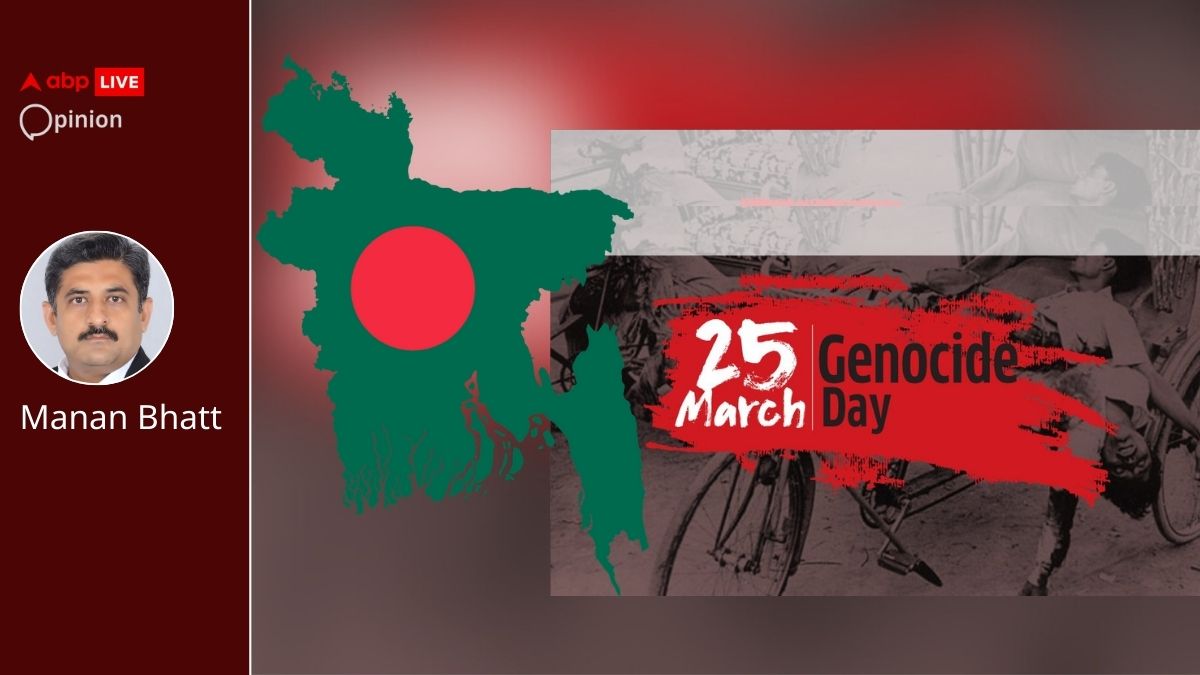
Recent Post
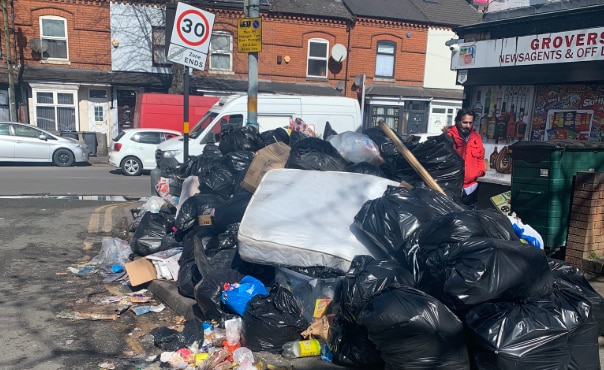
Britain’s Second-Largest City Faces Garbage Surge: 17,000 Tons Of Waste Pile Up As Workers Go On Strike
<p>In a tragic turn of events, the second-largest city of ... Read more
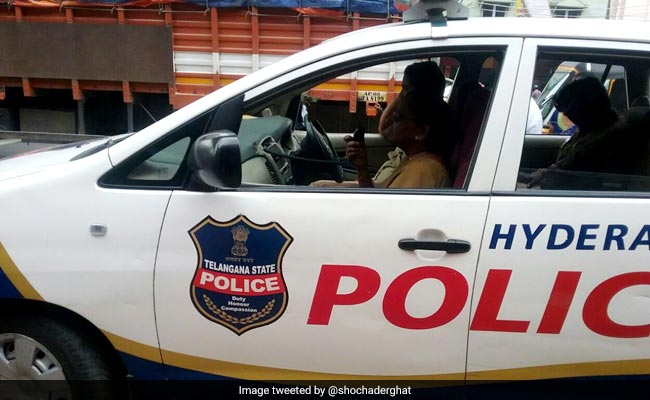
German Tourist Raped In Hyderabad, Cab Driver Detained: Cops
A 25-year-old German tourist was allegedly raped by a cab ... Read more
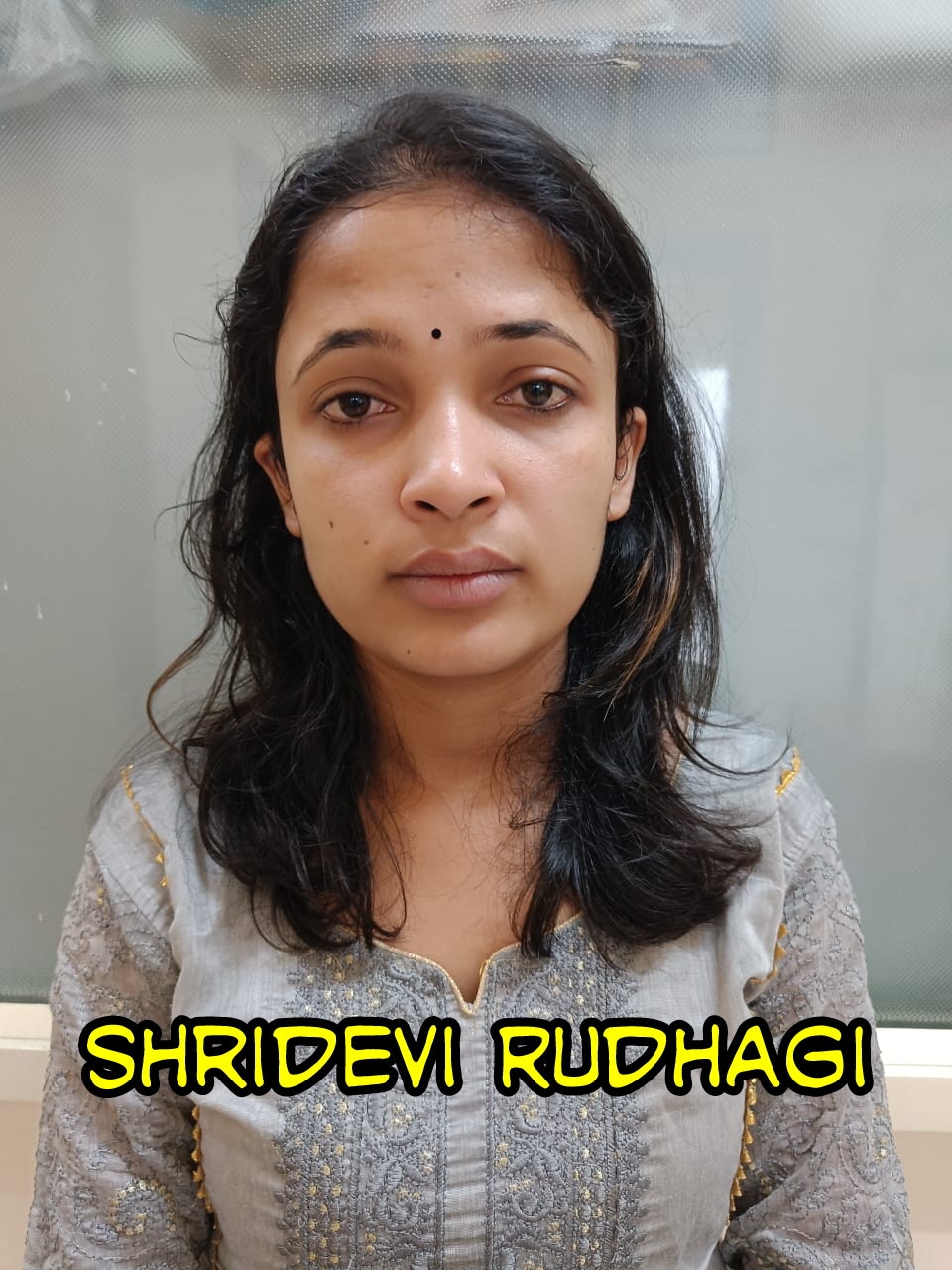
Bengaluru Teacher Arrested For Extortion After Affair With Student’s Father
A Bengaluru teacher has been arrested on charges of blackmail ... Read more
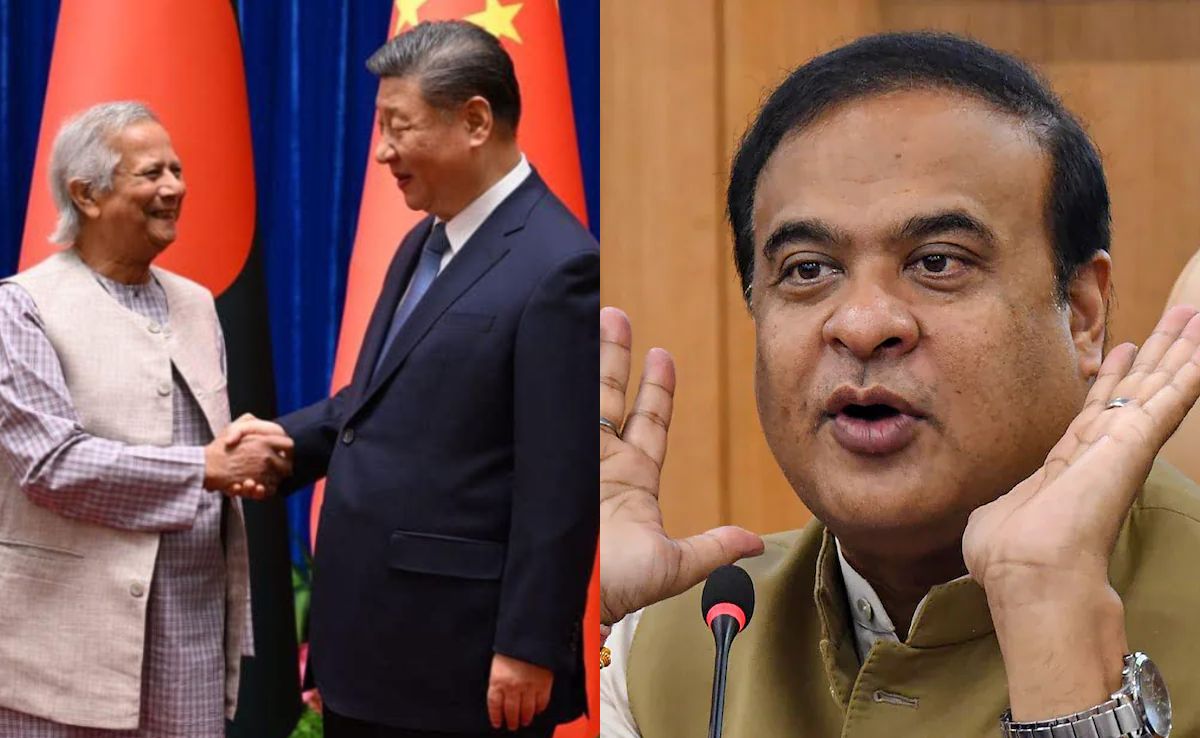
‘Might As Well Split Bangladesh…’: Northeast Leaders Slam Dhaka Remark
The remarks by Muhammad Yunus, the Bangladesh interim government’s chief ... Read more